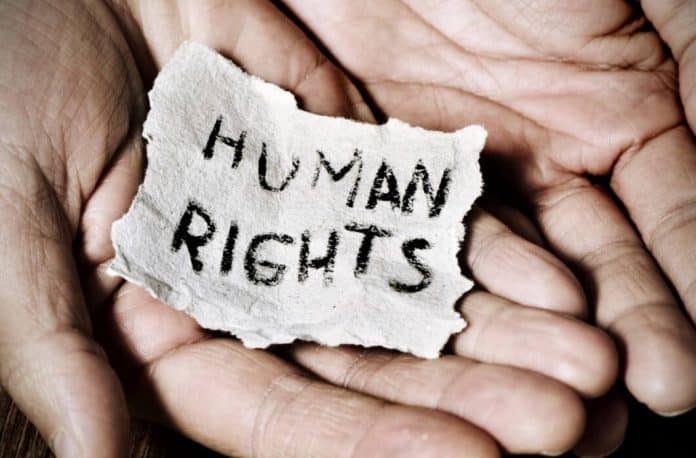What’s in today’s article:
- Universal Periodic Review
- News Summary
Why in news?
- Indian government at the Universal Periodic Review (UPR) Working Group meeting at the UN Human Rights Council in Geneva asserted that activities of civil society and human rights groups must conform to local laws.
Universal Periodic Review (UPR)
- The UPR is a process through which all UN Member States are provided the opportunity to review the human rights records of all other Member States.
- At the same time, each State under review has the opportunity to report on human rights conditions within their own borders.
- This includes actions that have been taken to address concerns detailed by other States.
- UPR sessions take place in Geneva three times a year under the auspices of the United Nations Human Rights Council (UNHRC).
- These sessions are orchestrated by the Office of the High Commissioner for Human Rights.
- Individual countries are scheduled for review every four and a half years.
- Outcome of the review consists of the questions, comments and recommendations made by States to the country under review, as well as the responses by the reviewed State.
- State has the primary responsibility to implement the recommendations contained in the final outcome.
- However, UNHRC will decide on the measures it would need to take in case of persistent non-co-operation by a State with the UPR.
Background:
- Recently, the fourth cycle of the Universal Periodic Review of India at the UNHRC was started.
- At this event, countries like Greece, the Netherlands and Vatican City called upon the Government of India to ensure freedom of religion and end discrimination against human rights defenders and religious minorities.
- Some member states, like Ireland, had raised concerns over the issue of the Foreign Contribution (Regulation) Act (FCRA), 2010 under which over 6,000 NGOs have had their operation licences revoked.
- The US also called on India to:
- reduce the broad application of the Unlawful Activities (Prevention) Act and similar laws against human rights activists, journalists and religious minorities;
- ratify the Convention Against Torture and prosecute those responsible for human rights abuses;
- improve the transparency of license adjudications related to FCRA; and
- create easier pathways for NGOs to appeal adverse government decisions on FCRA licences.
News Summary
- Solicitor general Tushar Mehta is leading the Indian delegation for the UPR. He clarified India’s position on the objections raised by the member countries.
India’s stand at the UPR:
- Regarding civil societies
- Actions were taken against some organisations due to their illegal practices.
- This includes mala fide re-routing of money and wilful and continuing violations of extant legal provisions, foreign exchange management rules and tax law of India.
- Civil society organisations are permitted to operate in India, but they must do so in accordance with law.
- India’s FCRA is robust and at par with international standards
- The legal provisions of FCRA are similar to regulations in other democratic countries and that the process of registration under the Act is transparent and technology driven.
- On Jammu & Kashmir
- India also firmly told Pakistan that the entire Union territory of Jammu & Kashmir and Ladakh was and would always be its integral and inalienable part.
- It also slammed Pakistan for raking up the Kashmir issue at the forum.
- On Citizenship Amendment Act 2019 (CAA, 2019)
- India told the UNHRC that its Citizenship Amendment Act 2019 is a limited and focused legislation.
- CAA fast-tracks citizenship for persecuted minority groups in Pakistan, Bangladesh and Afghanistan.
- The six minority groups that have been specifically identified are Hindus, Jains, Sikhs, Buddhists, Christians and Parsis.
- It reaffirms the country’s commitment to the welfare of persecuted minorities and takes into account historical context and the current ground realities.
- The legislation is similar to laws that exist elsewhere in defining specific criteria for citizenship pathways.
- It will help reduce their statelessness and would enable beneficiaries to have a more secured and dignified life.
- India told the UNHRC that its Citizenship Amendment Act 2019 is a limited and focused legislation.
Last updated on June, 2025
→ UPSC Notification 2025 was released on 22nd January 2025.
→ UPSC Prelims Result 2025 is out now for the CSE held on 25 May 2025.
→ UPSC Prelims Question Paper 2025 and Unofficial Prelims Answer Key 2025 are available now.
→ UPSC Calendar 2026 is released on 15th May, 2025.
→ The UPSC Vacancy 2025 were released 1129, out of which 979 were for UPSC CSE and remaining 150 are for UPSC IFoS.
→ UPSC Mains 2025 will be conducted on 22nd August 2025.
→ UPSC Prelims 2026 will be conducted on 24th May, 2026 & UPSC Mains 2026 will be conducted on 21st August 2026.
→ The UPSC Selection Process is of 3 stages-Prelims, Mains and Interview.
→ UPSC Result 2024 is released with latest UPSC Marksheet 2024. Check Now!
→ UPSC Toppers List 2024 is released now. Shakti Dubey is UPSC AIR 1 2024 Topper.
→ Also check Best IAS Coaching in Delhi
























